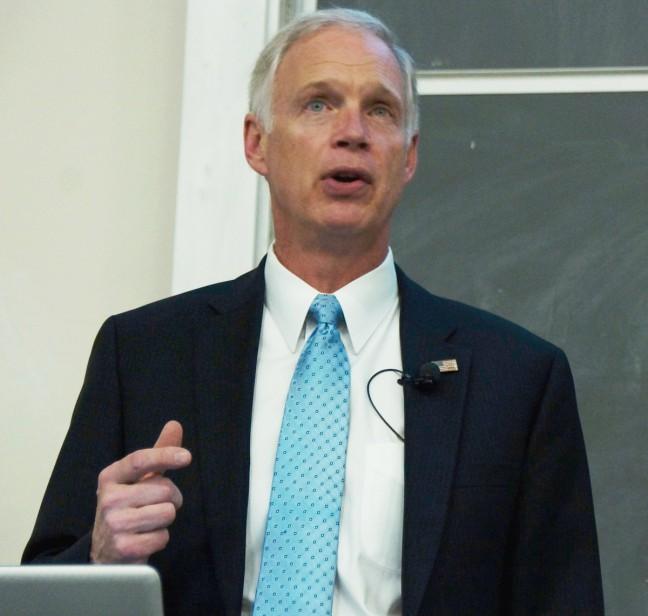The Democrats currently hold the majority in the Senate with 48 seats and two independents who tend to vote Democrat, according to the U.S. Senate website.
But this is liable to change, and Wisconsin is poised to once again play a major role in the 2022 midterm elections that could renew the Democrat’s majority or return the Senate to Republicans.
There will be several states with swing elections this year, including Georgia, Ohio and North Carolina, but Wisconsin in particular will be significant in determining which party will become Senate majority, University of Wisconsin political science professor Barry Burden said.
The race in Wisconsin has further drawn national attention given the recent announcement that incumbent Sen. Ron Johnson will seek re-election. Initially, Johnson claimed he would not run for re-election this term, but later revoked this decision, according to the New York Times.
Johnson may have changed his mind due to concerns that the Republicans will not be able to maintain control of the Senate, Burden said.
Though Johnson won his last two elections by large margins, University of Columbia political science professor Robert Erikson said he thinks Johnson is worried about his prospects in the upcoming election.
“At this point, he is probably the most vulnerable Republican Senator,” Erikson said in an email statement.
Several key changes will make this election different from past elections for Johnson, Burden said. Having the weight of the U.S. Senate riding on this election is one key reason experts expect to affect Wisconsin voter turnout.
“The balance of control of the U.S. Senate is likely to be decided by this race,” Burden said.
Another consideration for Johnson’s campaign is the Democrats’ reinvigorated winning streak in Wisconsin, with the state becoming more and more blue since the 2016 election, according to Five Thirty Eight.
In 2018, Wisconsin elected a Democratic governor, and in 2020, a Democratic president — perhaps indicating a trend of support for the Democratic party in Wisconsin, according to the County of Dane election information. Still, both of these elections were won by relatively narrow margins.
Also since the last election, Johnson has publicized his strongly right-wing stances on issues like vaccines, election fraud and the insurrection at the U.S. Capitol — views that Democratic candidates are already attacking him for, Burden said.
Polarizing media trends should be considered main reason for increased youth voter turnout
Johnson’s extreme opinions could jeopardize his chances in the upcoming election, UW public affairs and political science professor Dennis Dresang said in an email statement.
“He has a record that is embarrassing — conspiracy theories, anti-science, and against most women’s rights issues — and he is part of a Senate that is known for inaction,” Dresang said.
Though Johnson has several notable disadvantages in the upcoming Senate election, he has several advantages as well. Most notably, it is unusual for a state to elect the same party for both senate and president in the same election period, according to FiveThirtyEight.
This is especially true for this midterm election, Burden said. President Joe Biden’s ratings as president are currently low, combined with the fact that the party at the helm of the White House typically suffers losses in midterm elections, according to Forbes. Additionally, incumbents often have an advantage, which could give Johnson an edge.
The Semester That Was: Biggest Badger Herald stories of the Fall 2021 semester
Still, a large pool of progressive Democratic candidates faces off against Johnson. According to Burden, Lt. Gov. Mandela Barnes is the most promising Democratic candidate, boasting the most success in raising money and finding sponsors for his campaign. Barnes already works closely with Gov. Tony Evers and was appointed as the chair of the Governor’s Task Force on Climate Change, according to Barnes’ website.
Increasing survivor advocacy at state legislature, UW but advocates say expanded services needed
Despite Barnes’ successes so far, Burden said it is possible that Barnes, as well as the other Democratic candidates, might have underestimated the strength of Johnson’s proponents and overestimated Johnson’s vulnerabilities.
No matter how the upcoming election pans out, the votes of UW students can have a significant effect on the balance of political parties in the U.S. Senate election this year, Burden said.
Wisconsin elections for U.S. Senate will take place on Nov. 8, 2022 with a primary to narrow the candidate field on August, 9, 2022. UW-Madison students can learn about their voting options and register to vote here.


